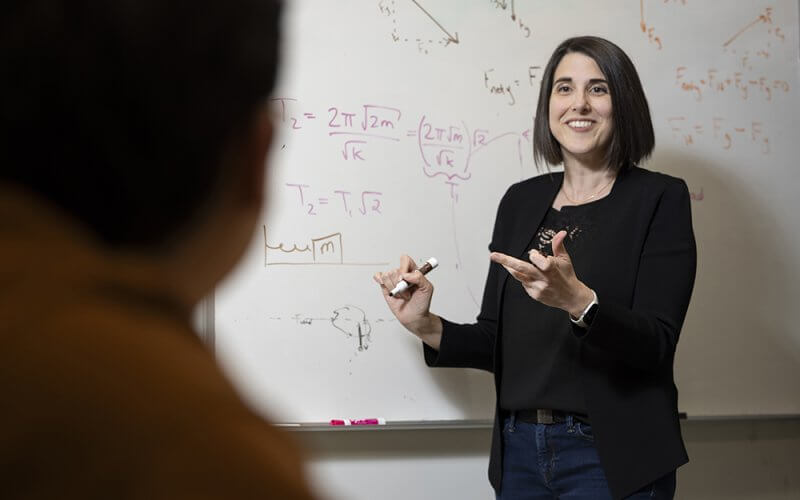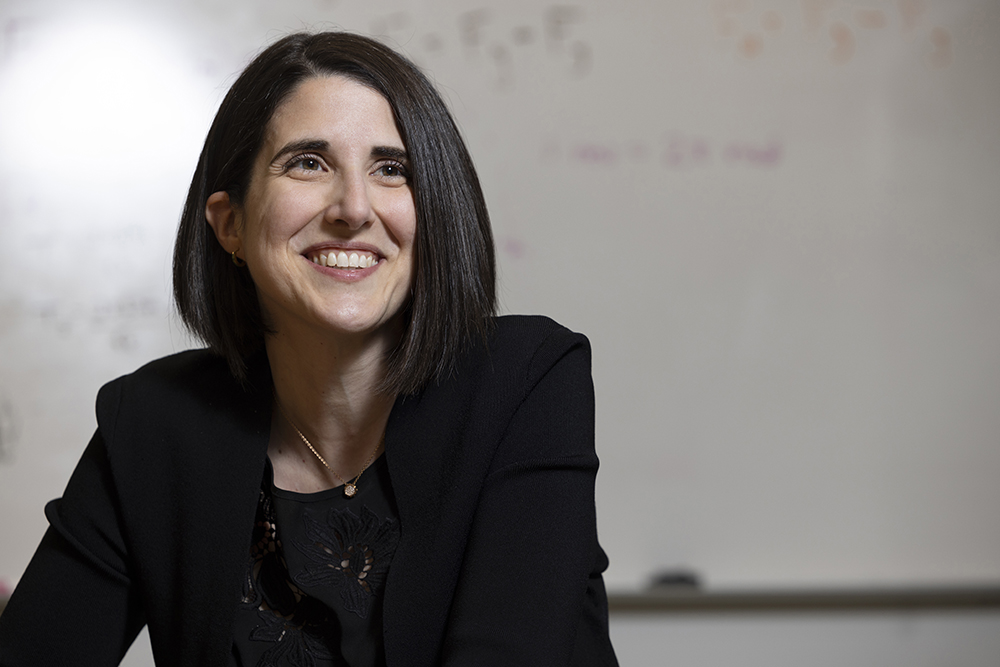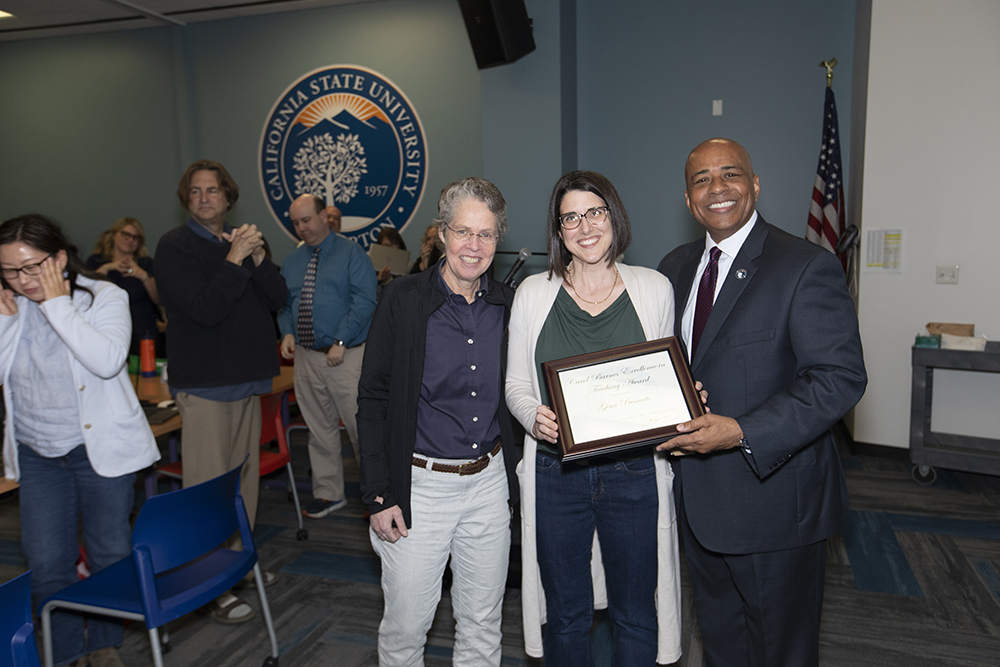
Cal State Fullerton faculty member Gina Passante is in a league of her own when it comes to teaching physics and quantum mechanics.
“Anything you could want a professor or a class to be — you get it all,” said physics graduate student Alexandra Macedo. “This is because of Dr. Passante’s hard work, dedication, passion and years of taking a lens to, and refining, physics instruction.”
Macedo said her instructor is skillful at explaining complex physics concepts and empowering students to face and conquer their struggles.
“Dr. Passante delivers the highest quality lectures that are well-organized and well-crafted,” she said. “There is simply no better educator at CSUF. It is a privilege to have been in her class.”
For her exceptional teaching, Passante is the recipient of Cal State Fullerton’s 2025 Carol Barnes Excellence in Teaching Award. The award was created to recognize faculty who demonstrate academic rigor in teaching consistent with CSUF’s mission and goals.
“I genuinely love my job. I wholeheartedly believe that any student who wants to learn can understand physics,” said Passante, associate professor of physics. “My job is to support students and help them develop the tools they need to succeed.”
As a first-generation college graduate, Passante reflected on her own early experiences to ensure students make the grade in her courses.
“To me, excellence in teaching goes beyond creating meaningful and innovative lectures and research experiences for students. My goal as an educator is to empower my students to fully participate, engage and thrive in their classes, research and, more broadly, their lives.”
Passante added that she was overwhelmed by just filling out the application to attend her local university.

“I didn’t sail through all my classes,” she said. “I worked hard and faced many teachers who told me I wasn’t cut out for it. I never want a student in my classes to feel that way.”
A native of Canada, Passante earned a doctorate in physics from the University of Waterloo and joined CSUF in 2015. She holds a bachelor’s degree in physics from the University of Winnipeg and a certificate of advanced studies in mathematics from the University of Cambridge.

She is a nationally recognized leader in teaching quantum mechanics — the physics of very small, isolated systems — and her research interests focus on physics education. She has authored 42 peer-reviewed publications, with more than half co-authored by her students.
Passante believes that anyone can learn quantum computing, an emerging field becoming one of the fastest-growing industries worldwide.
To prepare students, she developed the new course Quantum Computing for Everyone to introduce students from across majors to this technology. Quantum computing is a multidisciplinary field consisting of physics, computer science and mathematics, and uses the principles of quantum theory to solve complex problems.
“This field will need graduates of all disciplines who have a basic understanding of how a quantum computer works,” said Passante, director of the Catalyst Center for the Advancement of Research in Teaching and Learning Math and Science.
In her courses, Passante cultivates a community of support, respect and camaraderie to make physics and quantum mechanics courses not so daunting.
“Research shows that students need to be actively engaged in the material to learn,” she said. “Lectures are not a space for me to explain physics to students, but instead are an opportunity for students to participate in the learning process.”